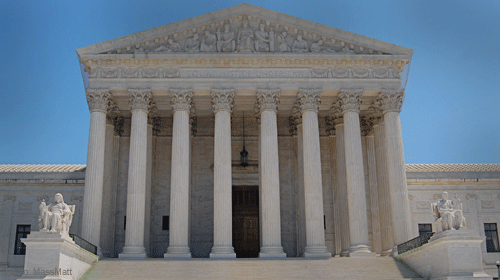
Yesterday, in an important First Amendment decision, the Supreme Court ruled that the government may not require federal grant recipients to endorse the government's policy positions. The decision in Agency for International Development v. Alliance for Open Society International, which was written by Chief Justice Roberts, also has important implications for public health.
Under the United States Leadership Against HIV/AIDS, Tuberculosis, and Malaria Act of 2003, nongovernmental organizations are eligible to receive federal funding to fight HIV/AIDS around the world. But Congress attached two conditions to the use of those funds. First, the funds cannot be used "to promote or advocate the legalization or practice of prostitution or sex trafficking." The legal basis for this condition is well-established: Congress can place restrictions on the ways that recipients of federal funds use those funds without violating First Amendment rights because there is no Constitutional right to federal funding. Congress is free to choose to fund certain types of programs, like HIV/AIDS prevention, and decline to fund others, like advocacy for legalizing prostitution.
The second restriction on Leadership Act money, however, was the subject of the Court's recent decision. Under the Leadership Act, any NGO that received money to fight HIV/AIDS was required to have a policy "explicitly opposing prostitution and sex trafficking." Arguing that this "anti-Prostitution Pledge" requirement violated the grant recipients' First Amendment rights by forcing them to affirmatively and explicitly pledge agreement with a government position, some of the organizations that had received Leadership Act grants, including the Alliance for an Open Society International, sued for the right to receive Leadership Act funds while remaining neutral on the topic of prostitution. Among other things, they argued that adopting the policy that the government demanded would in fact impede their ability to work with prostitutes to stem the spread of HIV/AIDS.
The ACLU filed an amicus curiae brief in support of AOSI arguing that the "anti-Prostitution Pledge" was more than governmental regulation of the use of federal funds. Instead, we argued, it unconstitutionally imposed the government's opinion on private organizations. The government argued that it could place conditions on funding without violating First Amendment rights because non-governmental organizations were free to reject federal funding and adopt any stance on prostitution that they wished, or work through an affiliate.
Yesterday, the Supreme Court rejected the government's arguments, recognizing a critical distinction between restricting the use of federal funds to define the scope of a program, which is constitutional, and using federal funds to coerce grant recipients into adopting a particular ideological viewpoint that is separate from its use of those funds, which is not. Requiring that a grant recipient affirmatively adopt a government-sanctioned policy position infringes on the recipient's First Amendment right to avoid compelled speech.
As Steven R. Shapiro, the ACLU's National Legal Director, said on Thursday, this "decision places real limits on the ability of government to impose its views on others by attaching strings to government dollars. The price of obtaining a government grant should not be the loss of First Amendment rights." Thus, "the government, like any other funder, can take steps to ensure that the money it gives to private organizations is spent for its intended purpose. Under the First Amendment, however, the government cannot tell grant recipients what they must believe or what they can say with private funds."
Today, we celebrate the Court's reaffirmation of the First Amendment and its rejection of Congress's attempt to dictate the content of free speech.
Learn more about the first amendment and other civil liberties issues: Sign up for breaking news alerts, , and .


